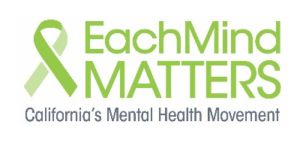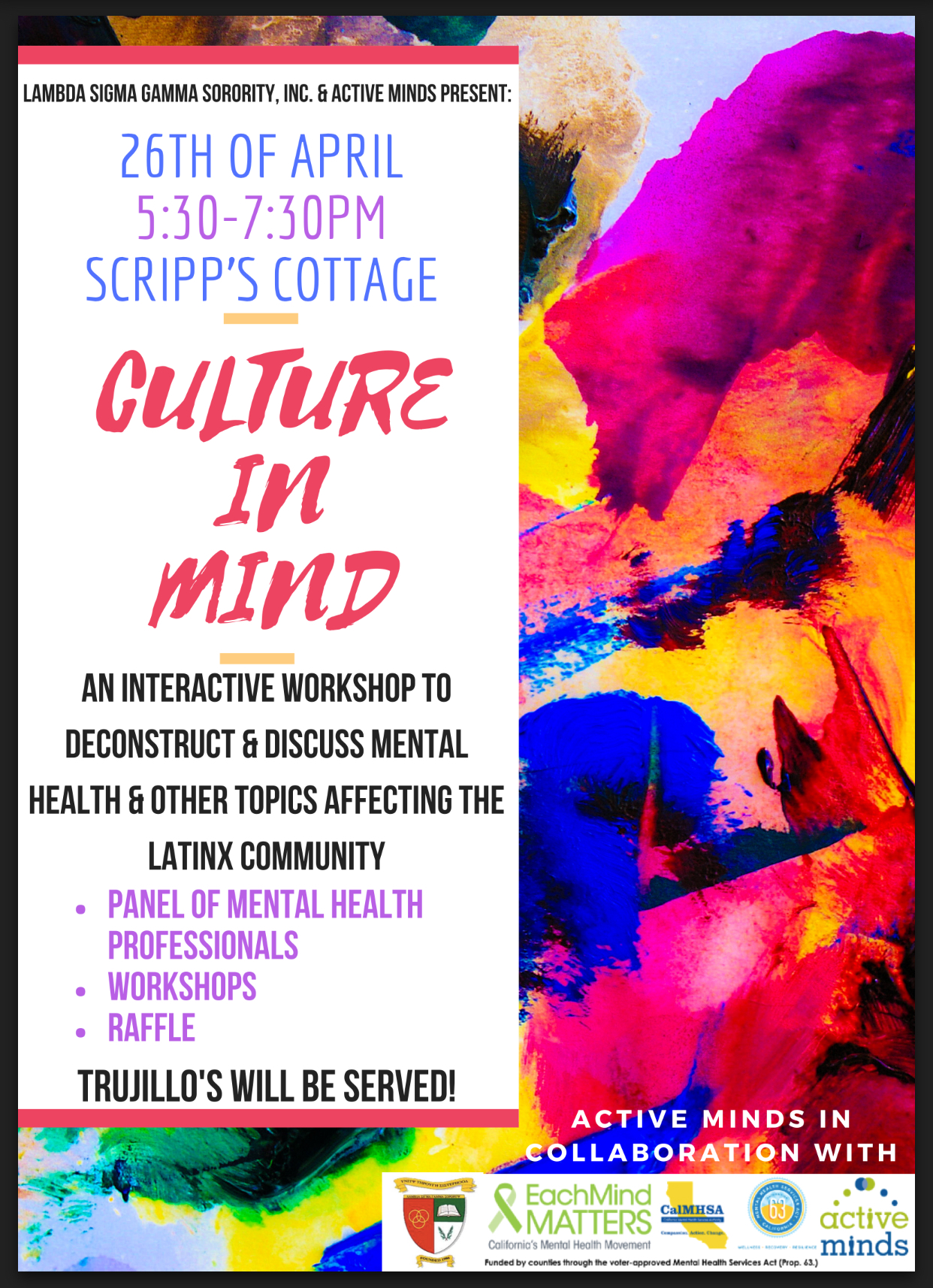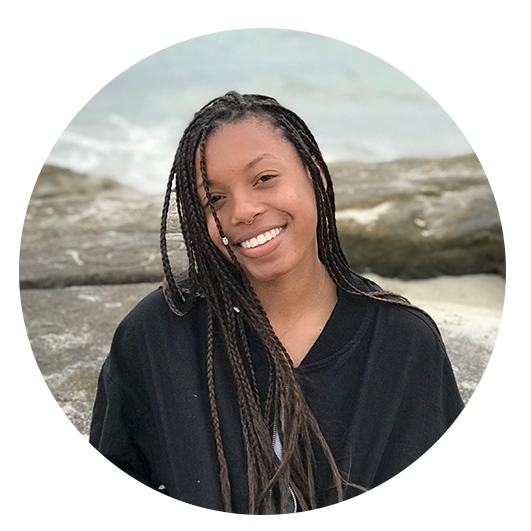Since 2015, Active Minds has been in partnership with Each Mind Matters: California’s Mental Health Movement, to bring forth mental health awareness to groups in which the topic remains heavily stigmatized. The organizations work together to enhance the conversation about mental health among diverse populations of students throughout California. Last academic year, I was lucky enough to participate in this project with two other individuals from my school, San Diego State University, to put on an event that focused on bringing mental health awareness to the Latinx community.
Each participating chapter in the cohort was an Active Minds chapter on any college campus in California at any level (so it could have been a junior college, a 4-year, private, etc.). Personally, I had no idea that there were so many Active Minds chapters from all across California, up and down the coast! We started the project in the middle of the fall semester—just going over logistics of what we were going to do for this project—and had monthly conference calls over the phone with Active Minds’ Associate Director of Programs, Becky Fein, who’s based in California. When spring semester rolled around, each chapter began to brainstorm what unique event they were going to host on their campus.
At SDSU, we decided to put on an event that included a few segments. The first was a panel in which a few professionals who worked in our Counseling and Psychological Services Department, who identified as being Latinx, answered questions about their background, what led them to their profession, and why they believe mental health is such an important topic to discuss in their community. This discussion was followed by specific workshops for event participants. One workshop focused on masculinity and mental health, led by one of our male therapists, and the other was a session centered around mental health within one’s family.
Together with my two partners, we started to reach out to various cultural-based organizations on campus, including traditional clubs and Latinx-based organizations, such as Latinx fraternities and sororities. We also checked out our local Center for Intercultural Relations, a place on campus dedicated to involvements that center around all the different cultures that are based on campus (search your campus directory to see if you have something like this as well). Throughout the spring semester, there were monthly meetings with the participating Latinx therapists and leaders of the organizations we partnered with.
We decided to host our event on the same day as the annual Stress Less Outreach — that way, as people visited the outreach table we were able to promote the special event in the evening. The event had a pretty good turnout, and lots of people who attended thought it was something very needed in their community and said they gained a lot from it (even a journalist from the campus newsletter came to interview one of us on the event!). And as a bonus, we even had Rubio’s, the Mexican-themed restaurant on-campus cater the event, which fit the overall theme. (pro tip: hosting an event that includes food is also a plus in getting people to come).
I was so thankful to be able to participate in an event such as this and be able to represent Active Minds on a broader scale at my university. Partnering with other organizations and individuals on your campus allows you to practice very useful networking skills and can also open the door for new opportunities for your own chapter of Active Minds to increase its presence on your campus. I encourage other chapters to start chatting with other organizations whose goals align with your own, and work together to put on an event that can have a positive impact on people. If you aren’t already, I encourage you to visit your university’s own counseling center and see if any therapists are interested in helping out with the organization (which a lot of them are!). If you reach out to multiple different groups on campus, you are bound to find someone who wants to work with your chapter. After working on this project, Active Minds SDSU will continue to partner with other organizations on our campus to further the mission of reducing the stigma of mental health and bringing mental health awareness to all types of communities.

This program was funded by counties through the voter-approved Mental Health Services Act (Prop. 63). It is one of several Prevention and Early Intervention Initiatives implemented by the California Mental Health Services Authority (CalMHSA), an organization of California counties working to improve mental health outcomes for individuals, families and communities. CalMHSA operates services and education programs on a statewide, regional and local basis. For more information, visit www.calmhsa.org or Each Mind Matters www.eachmindmatters.org




